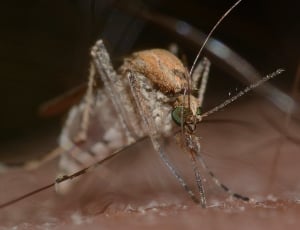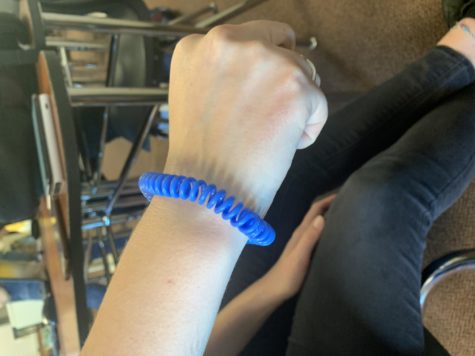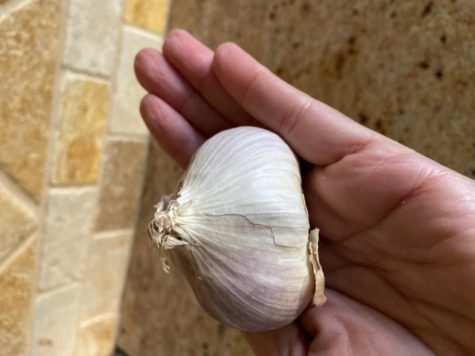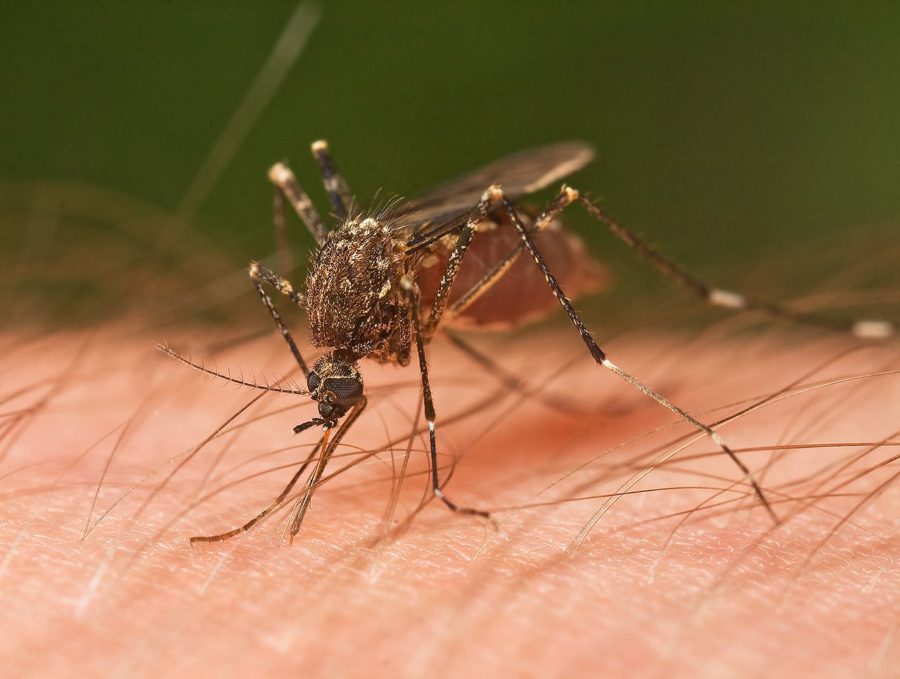Your donation will support the student journalists of ELEANOR ROOSEVELT HIGH SCHOOL - CA. Your contribution will allow us to purchase equipment and cover our annual website hosting costs.
How Citizens Can Safeguard Themselves From Mosquitoes
November 15, 2019

Earlier this month we at the Roosevelt Review covered a story on the sudden late-September outbreak of West Nile virus that had come to Eastvale via a pesky population of mosquitoes near Riverwalk. Journalist Brianne Leber went over the dangers of West Nile virus and it’s noticeable symptoms, including high fever, neck stiffness, and disorientation, as well as it’s flow of transmission, with the disease being passed to humans via mosquitoes, which the mosquitoes picked up from birds.
Another important detail she went over was how to reduce the mosquito population in the first place, through reduction in available breeding zones, i.e getting ride of any spots of standing water where mosquito larvae are allowed to mature. These spots include bird baths or out-of-commission water fountains, unkept rain gutters, trash cans, pots, and neglected buckets. Getting rid of sources like these helps reduce the population in suburban areas significantly.
However the solution isn’t just that easy for everyone. You might already’ve taken care of any sources in your control, or like other residents in Eastvale you might live near a large source you can’t control. For people here, living near Eleanor Roosevelt High School specifically, the problem is in the Santa Ana river by Riverwalk trail. No matter how many buckets you empty or gutters you clean there isn’t very much getting around that issue, and mosquitoes can pose a serious risk on human health. To emphasize this point, Jason Isaac, Senior and 2019 Homecoming King of ERHS, shared his past experience with the diseases of mosquitoes.
“I almost died of one a few years back,” he shared, “it got me dengue’s fever.” It wasn’t without a silver-lining however. Afterwards he says “My skin thick… Whenever I do slap games n stuff, it takes awhile for the blood vessels to make my skin red.”
Regardless we’ll go over a few ways that trail-goers and other citizens living near Riverwalk park, as well as Roosevelt students, can mosquito-proof themselves.
The first as well as one of the most convenient ways to proof yourself would be to wear a mosquito-repellent bracelet. Not as much of an issue to apply as some toxin-containing mosquito sprays, repellent bracelets can be bought relatively cheap and contain natural citronella oil, able to back off blood suckers for as much as 240 hours per band.

Another effective method is the use of DEET spray, which has been able to repel mosquitoes since the late 1940’s. Existing research shows that when used in accordance with label instructions, DEET sprays should not have negative effects on your health, though incorrect usage can lead to skin irritation and more.
You can also use a rather unorthodox way of proofing your home from these pests, with repellent plants. Certain plants will actually ward away mosquitoes if they’re found growing in your yard, including basil, bee balm, catnip, floss flower, lavender, garlic, and marigold

But that’s not all the ways you can protect yourself. To get a broader scope of suggestions, I asked ERHS Senior Puyao Zhang if he knew any methods to keep safe from mosquitoes, as he has avid experience in outdoor recreation and animal care, and is currently taking zoology and environmental science.
“Wear long sleeves and tuck your pants into your socks,” he says. “Stay in the middle of the trail, that’s what I learned in environmental science… Stay at home and close the door. Keep your door shut every time you enter a room or a house.”
Puyao also shared his first-hand experience of neglecting potential breeding ground.
“A week ago I had a plant in my house, growing in the water. Some mosquitoes snuck into my house and laid eggs in the pot, we didn’t realize is, and we found many mosquitoes flying around. So cover your pots.” A very important to lesson to learn here about being aware of threats.
